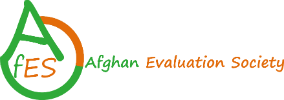Afghan Evaluation Society (AfES) is a nonprofit and Afghan-led Voluntary Organization of Professional Evaluators (VOPE) registered with the Afghan Ministry of Economy as an NGO; that aims to strengthen evaluations for Sustainable Development in Afghanistan
What We Do
AfES intends to work with the government, civil society and development agencies to strengthen evaluations and promote the Sustainable Development Agenda in Afghanistan. Evaluation is being increasingly important due to the fact that it needs to support the new Sustainable Development Goals (SDGs) that have been endorsed by UN on 26th September 2015, and moving forward the Global Evaluation Agenda (GEA) developed by a large group of evaluation professionals and institutions under EvalPartners umbrella.
AfES is established by a number of professionals in the field of evaluation whose primary objective is to promote the use and practice of evaluation, professionalize evaluation and build the capacities of governmental entities and CSOs in the field of Monitoring and Evaluation, and create bases of evidence through research, in order to support evidence-based policy making and improved programming in Afghanistan.

Vision
“Strengthened Evaluations for Sustainable Development in Afghanistan”


Mission
“To establish a leading platform for evaluation through capacity building, advocacy and networking, in order to support evidence-based decision making for sustainable development in Afghanistan.”
Strategic Objectives
To establish a diverse network of evaluators, parliamentarians and civil society organizations committed to advance the theory, practice and use of evaluation.
To build human and institutional capacities in evaluation.
To establish linkages with regional VOPEs, institutions and universities for knowledge sharing and professionalization of evaluation
To promote the SDG agenda in Afghanistan through advocacy, capacity building and awareness rising.

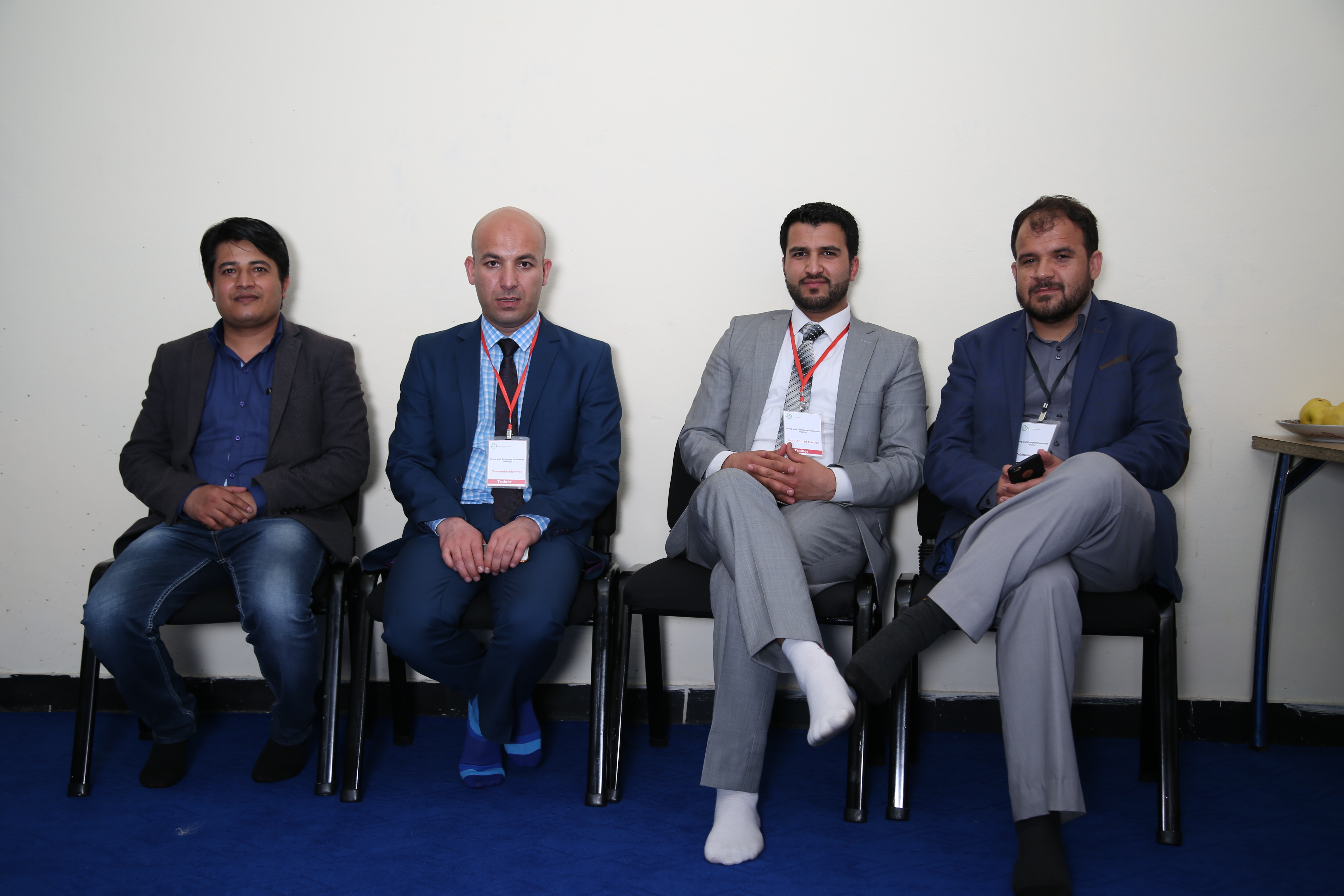
Values
Integrity
Equity
Commitment
Quality
Governance Structure
Responsibilities of General Assembly
General assembly is composed of paid members. The payments made by members is to advance the theory and practice of evaluation and should only be used to implement interventions that are in line with the strategic objectives of AfES, as stipulated in this document.
The responsibilities of GA include
Advocating for AfES in advancing the theory, practice and use of evaluations,
To use their votes in electing appropriate board members from within the GA as the term of board members expire,
To attend Annual General Meetings (AGMs), approve the annual report for previous years, the work plan for upcoming years, the audit reports, and strategic plans for AfES. And, vote for new board members as nominated by board members, self-nominated or nominated by at least three GA members.
To hold accountable the Board of Directors (BoD) for their oversight from the Executive Secretariat, and ensuring that the board members use their rights in well managing the resources of the organization in line with approved policies.
To advocate on behalf of AfES in relevant events, conferences, and meetings.
GA members are not allowed to enter in any kind of agreement with other institutions on behalf of AfES unless they have been assigned by the board of directors to do so.
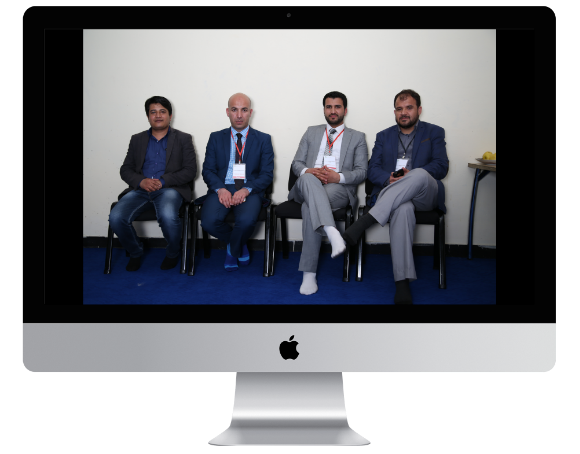
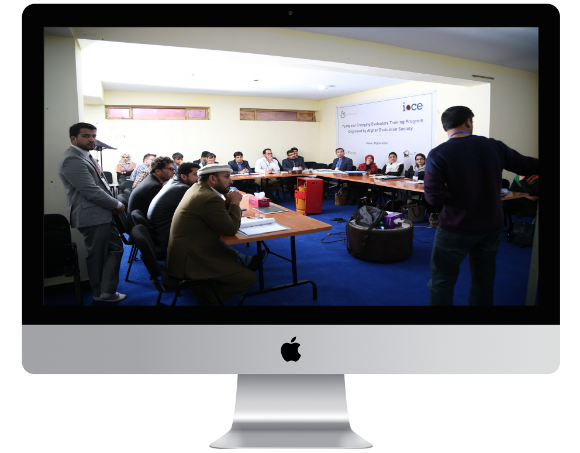
Afghan Evaluation Society (AfES) has a very strong and accountable governance structure, the highest decision-making body is the General Assembly (GA), members of the GA are the founding members as permanent members, and other professionals are nominated by the chairman of the board and elected by the GA for specific terms to serve. The GA is led and chaired by chairman of the board, while the decisions made are done through elections.
Board of Directors is the second decision-making body, the board is responsible to monitor and have an close oversight role on the executive secretariat. The board consist of seven members, three are the founding members, and rest of the members are elected/selected based on their profession, donors who provide grant funding to AfES are also encouraged to introduce board members in case members of the board are not completed, donors can propose two types of board members; 1) observing members, 2) functional members, observing members has all the rights and authorities equal as other members, and they have voting right, while observing members are only members that they attend board meetings, they can provide suggestions and recommendations, but they do not have voting rights on key decisions.
The Executive Secretariat is led by Executive Director, who is responsible to manage the day to day activities of the organization, lead implementation of projects, and responsible for accountable and transparent implementation of funds, report to donors and the board. More detailed information is provided in the governance charter/statute of the organization.
Context
Billions of dollars are spent in Afghanistan; donors are putting a lot of efforts and money without scrutinizing project implementations and disseminating results to public and wider development community. Afghanistan lacks a government wide Monitoring and Evaluation policy, there is also inconsistency in monitoring and evaluation practices across different government ministries. Donor projects that are implemented off budget implements monitoring and evaluation standards to a higher degree, while this is then decreased when referred to the on-budget projects of donors.
Lack of streamlined evaluations across government entities is one of the biggest challenge that need to be addressed, there is lesser degree of trust on government from the donor agencies due to the fact that government is unable to justify donor funding and ensure accountability and transparency. Results of successful projects are rarely disseminated to wider development community and the public, lessons learned are not documented to take them forward in the future projects for improvements.
2015 is a year of global transformation, in which the new Sustainable Development Goals were framed, and endorsed by the UN on 26th September. Social equity and gender equality are central to ensure the realization of sustainable and equitable development. Evaluation must be equipped to inform its design and implementation, both at global and national level. National development policies and programs should therefore be informed by evidence generated by credible national evaluation systems that are equity-focused and gender-responsive, while ensuring policy coherence at regional and global level.
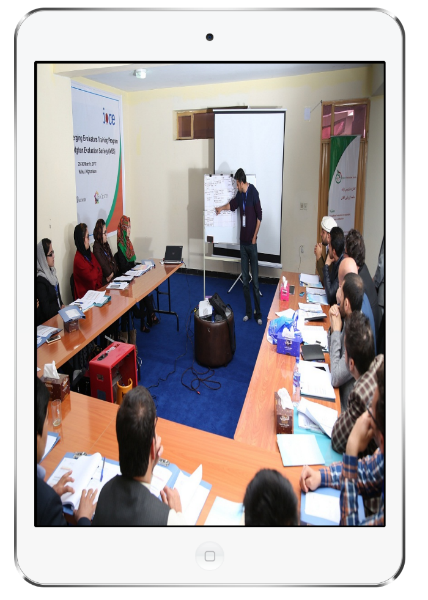
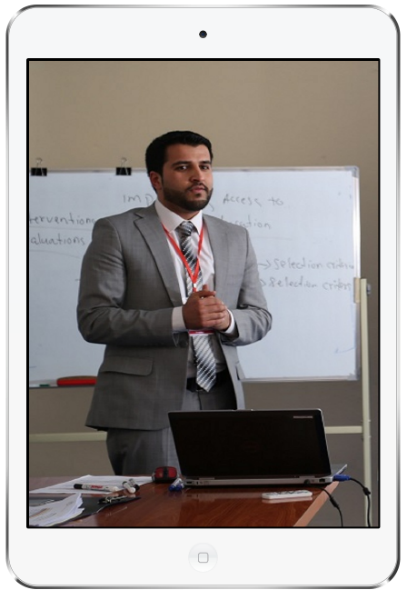
EvalPartners, the global movement to strengthen national evaluation capacities for equity-focused and gender-responsive evaluation systems, co-led by International Organization for Cooperation in Evaluation (IOCE) and UN Women, declared 2015 as the International year of Evaluation. Several key stakeholders, including the United Nations Evaluation Group and the OECD/DAC EvalNet, joined the movement.
Least Developed Countries (LDCs) such as Afghanistan are incapable to develop and implement coherent evaluation policies stand-alone, due to the fact that there are many other challenges and priorities for the government to tackle, therefore; evaluation societies and communities of practices should work side by side with the government, in collaboration with donor agencies and other CSOs to raise awareness for the importance of evaluation, increase demand for use and practice, and then gradually develop and implement evaluation standards.
It is also very important that each and every step in promoting evaluation has a credible place for itself, and that buy-in for strengthening evaluation is obtained from the government, this is for the sake to successful implementation of the strategy to strengthen evaluation. Government is considered as a first and foremost stakeholder to promote the SDG and Evaluations agenda, and AfES intends to complement this role with the support from donor community and CSOs. AfES is also committed to coordinate efforts that aim to strengthen evaluations in Afghanistan and in the region; this is only possible with technical and financial support from the prospective donors in Afghanistan.
Board of Directors’ Profile






Approaches and Entry Points
It is imperative to identify successful approaches and entry points for taking forward and implementing any strategy. Therefore, AfES has carefully identified and intends to implement this strategy with the following approaches and entry points.
| Entry Point | Approach |
|---|---|
| Capacity building of CSOs on Monitoring, Evaluation and Research | AfES will reach out to potential CSOs to train them on Monitoring, Evaluation and Research. These trainings will be in the form of on-the-job training to build the human capacity of CSOs in evaluations so that they will contribute to the achievement of Sustainable Development in Afghanistan by having an oversight role on the government and donors. |
| Institutionalization of Monitoring and Evaluation | It is very important to institutionalize Monitoring and Evaluation, AfES intends to institutionalize M&E through working with government, donors and CSOs in order to develop, and subsequently implement coherent monitoring and evaluation policies and systems. |
| Promoting Evaluation as a profession | AfES will work with universities and educational institutions in Afghanistan and the region to encourage youth and emerging evaluators in order to enter the field of evaluation, and make their careers paths in the field of Evaluation. Moreover, AfES will also provide capacity building training to Youth and Emerging Evaluators (YEEs). |
| Research | Research provides insights and evidence for policy making and evidence-based decision making. AfES will focus on research as one of its main components in order to create bases of evidence for sustainable development and policy making in Afghanistan. |
| Networking and Establishment of M&E Forums | AfES intends to establish networking among evaluators, universities and educational institutions in order to create demand for use and practice of evaluation, and share knowledge and best practices across different stakeholders, this will also create an enabling environment for use of evaluation data. |
| Identification of policy interventions | AfES should work with partners, stakeholders, government institutions and CSOs to promote the global evaluation agenda, and the sustainable development goals in order to ensure that appetite for embedding evaluation in the development agenda is strengthened and the culture of evaluation is cultivated among development agencies and the government. |
| Promoting the agenda of SDGs and Global Evaluation Agenda | AfES should work with partners, stakeholders, government institutions and CSOs to promote the global evaluation agenda, and the sustainable development goals in order to ensure that appetite for embedding evaluation in the development agenda is strengthened and the culture of evaluation is cultivated among development agencies and the government. |
| Awareness Raising | AfES will also develop and implement awareness rising on Sustainable Development Goals, Evaluation and the principles for evaluations. This will enhance enabling environment and create a space for increased use and practice of evaluation in general. |
| Publications | AfES will also work on publications of newsletters, and other products that are related to evaluations. These will include study reports, evaluation reports and publications of specific evaluations that will be conducted by AfES. |
| Regional Cooperation | It is understood that there have already been enough progress in standardizing evaluation; therefore, it is vital to learn from others in the region. AfES will work with regional evaluation societies for sharing lessons learned and learning from others, activities will include joint conferences in Afghanistan, South Asia and Central Asia. Study tours and joined projects will also be implemented to strengthen and enhance regional cooperation |
| Institutional Development of AfES | AfES is a newly established evaluation society, one of the major objectives will remain to further develop AfES in terms of institutional development, and these will include development of policies, by-laws and charters for AfES. |
| Localizing and Streamlining Evaluation in Afghanistan | Major materials and methodologies in English are primarily available in English Language, it is very important to make them available in local languages, as well as modify them according to the needs and cultures, as well as adopt them based on situations. AfES will work to provide materials and methodologies in evaluation in local languages of Pashto and Dari. Moreover, those approaches that need to be adopted and modified will be streamlined in collaboration with the government, CSOs and development agencies in Afghanistan. |
Potential Stakeholders and Sponsors
We at AfES understand that we cannot be successful without significant technical and financial assistance from government, members, CSOs, development agencies and donors. Therefore, we have identified potential stakeholders and sponsors in order to implement our strategy. These are identified as following:






Challenges, Opportunities and Assumptions
There are many challenges on the way to Sustainable Development in Afghanistan, Afghanistan as one of the poorest countries with lack of good governance, insecurity and poor economy and human development is facing many challenges to go forward and improve the current situation. AfES also understands that this ambitious strategy that we intend to implement will face a lot of challenges, and certain assumptions are also made that have vital role in successful implementation of this strategy.
Challenges
InsecurityOne of the major challenges is insecurity in Afghanistan, when conducting quality evaluations, it is imperative to have physical accessibility to people and communities where interventions are taking place.
Poor Statistics: Statistics provide insights and data for evaluations, as well as they serve as an important factor in planning and designing development interventions, this remains as a challenge in Afghanistan.
Lack of capacity in Evaluations:Government officials lack necessary capacities in evaluation, this hampers our plans to convince them implement evaluation standards. CSOs also lack technical understanding and importance of Evaluations; however AfES intends to build human and institutional capacities of governmental officials as well as of CSOs in Afghanistan.
To be expanded:
Potential Projects and Interventions
AfES will implement projects and interventions in line with the strategic objectives and the strategic objectives are aligned with the Global Evaluation Agenda and the Sustainable Development Goals. The following Strategic Objectives (SOs) will be achieved through various interventions and projects that has been detailed in this section.
To achieve the above stated strategic objectives, we intend to implement the following projects and interventions:
Capacity building of CSOs and Governmental official on Monitoring and Evaluation
Organizing workshops, events and conferences in support of SDGs and Global Evaluation Agenda
Networking and establishment of forums to support and strengthen the evaluation functions
Sharing of knowledge and experiences with/from regional VOPEs, evaluation communities of practices and regional evaluation societies.
Conducting research and evaluations in Afghanistan that will focus on assessing the progress towards implementation of SDGs,
Develop evaluation policies for governmental ministries and independent directorates,
Raise awareness on importance of evaluation in evidence-based policy making
Working with donors, partners and stakeholders to promote the evaluation agenda in Afghanistan,
Work with universities, educational institutions and network in Afghanistan and in the region to professionalize the profession of evaluation, build capacity of Emerging evaluators, and standardize Evaluation in Afghanistan, and
Develop institutional policies, by-laws, procedures and regulations for Afghan Evaluation Society in order to strengthen the organization.

